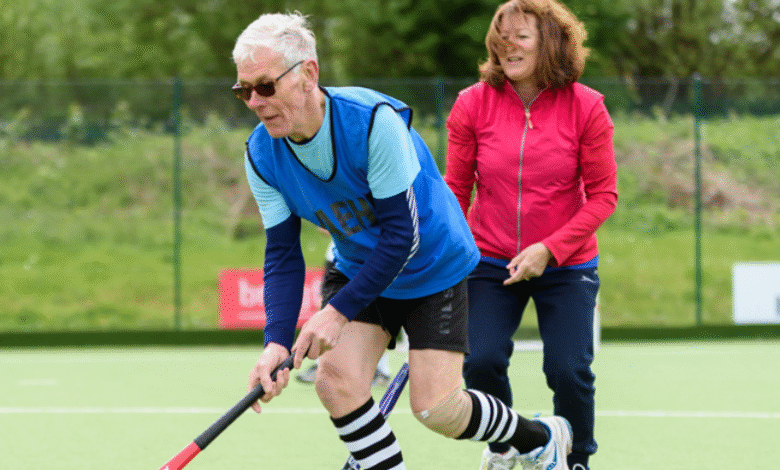How Sports Improve Mental and Physical Health

Introduction to the Benefits of Sports
In today’s fast-paced world, maintaining both mental and physical health is more important than ever. One of the most effective and enjoyable ways to achieve this balance is through sports. Whether it’s running, swimming, basketball, or yoga, engaging in sports offers a wealth of benefits that impact the mind and body profoundly. This article explores how sports improve mental and physical health by enhancing brain function, boosting mood, and strengthening the body. Understanding these benefits can inspire you to incorporate sports into your daily routine for a happier, healthier life.
The Link Between Physical Activity and Mental Well-being
How Exercise Affects Brain Chemistry
When you participate in sports, your brain releases a cocktail of chemicals such as endorphins, serotonin, and dopamine. These neurotransmitters are often referred to as “feel-good” chemicals because they reduce pain perception and create feelings of pleasure and happiness. Endorphins, for instance, act as natural painkillers and mood elevators, which is why many athletes experience a “runner’s high” after intense physical activity.
See also: The History of Popular Sports Around the World
Reduction of Stress and Anxiety Through Sports
Sports also act as a powerful stress reliever. Physical activity reduces levels of the body’s stress hormones, such as adrenaline and cortisol, while stimulating the production of endorphins. The repetitive motions and focus required in many sports provide a meditative-like state, which helps quiet the mind and reduce anxiety. Regular participation in sports can significantly lower symptoms of anxiety and improve overall emotional resilience.
Physical Health Benefits of Playing Sports
Cardiovascular Improvements
Sports like running, cycling, and swimming get your heart pumping, which strengthens the cardiovascular system. Regular aerobic exercise improves heart health by increasing cardiac output, lowering blood pressure, and reducing bad cholesterol levels. This leads to a lower risk of heart disease, stroke, and other chronic conditions.
Strengthening Muscles and Bones
Weight-bearing and resistance sports such as weightlifting, tennis, and basketball promote muscle growth and bone density. This is essential for maintaining strength and mobility as we age. Strong muscles also support joint health and reduce the risk of injury.
Enhancing Flexibility and Coordination
Sports that involve dynamic movements, like gymnastics, martial arts, and dance, improve flexibility and coordination. Enhanced flexibility reduces muscle stiffness, improves posture, and prevents injuries, while better coordination enhances overall physical performance and balance.
Sports and Emotional Health
Boosting Self-Esteem and Confidence
Participating in sports allows individuals to set goals, achieve milestones, and witness personal growth, which significantly boosts self-esteem and confidence. Overcoming challenges and improving skills provide a sense of accomplishment that translates into other areas of life.
Sports as a Tool for Emotional Regulation
Sports teach emotional discipline and coping strategies. Athletes learn to manage emotions such as frustration, anger, and disappointment, which is invaluable for mental health. These skills help in everyday situations by promoting calmness and emotional balance.
Social Benefits of Sports Participation
Building Stronger Relationships and Teamwork
Sports often involve teamwork, which fosters communication, trust, and cooperation among participants. These social interactions build stronger relationships, create a sense of community, and enhance social skills.
Reducing Feelings of Loneliness
For many, sports provide a social outlet that combats loneliness and social isolation. Being part of a team or a sports group connects people with similar interests, creating friendships and a supportive network.
Cognitive Enhancements From Regular Sports Activity
Improved Concentration and Memory
Engaging in sports demands focus and strategic thinking, which sharpens concentration and enhances memory. Research shows that physical activity stimulates brain areas responsible for learning and memory retention.
Sports and Decision-Making Skills
Sports require quick thinking and decision-making under pressure. This improves cognitive flexibility, helping individuals to think clearly and make better decisions in high-stress environments.
Sports for Different Age Groups
Benefits for Children and Adolescents
For younger populations, sports play a critical role in physical development, social skills, and mental health. They help children build confidence, learn discipline, and develop healthy habits early in life.
Advantages for Adults and Seniors
In adults and seniors, sports help maintain physical fitness, prevent chronic diseases, and support mental acuity. Activities tailored for older adults, like walking groups and swimming, also promote social engagement and reduce the risk of depression.
Overcoming Mental Health Challenges Through Sports
Sports and Depression Relief
Physical activity is a natural antidepressant. Sports improve mood and energy levels by increasing serotonin production and providing a distraction from negative thoughts, which can ease symptoms of depression.
Anxiety Management Techniques Using Physical Activity
Regular sports participation helps manage anxiety by lowering physiological symptoms like rapid heartbeat and muscle tension. It also builds coping skills, allowing individuals to handle anxiety-provoking situations more effectively.
Tips to Get Started with Sports for Better Health
Choosing the Right Sport for You
Selecting a sport that matches your interests, fitness level, and lifestyle increases the likelihood of long-term commitment. Consider trying multiple sports to find the best fit.
Setting Realistic Goals
Setting achievable goals, whether improving endurance or mastering a skill, helps maintain motivation and provides a sense of progress.
Staying Consistent and Motivated
Consistency is key to reaping the benefits of sports. Joining clubs, finding a workout buddy, or scheduling regular sessions can help maintain motivation.
Common Misconceptions About Sports and Health
Many believe sports are only for competitive athletes or the young, but in reality, people of all ages and fitness levels can enjoy and benefit from sports.
Expert Opinions and Scientific Studies on Sports Benefits
Numerous studies by organizations like the Mayo Clinic and the World Health Organization confirm that regular sports participation lowers the risk of mental health disorders and improves physical well-being.
Frequently Asked Questions (FAQs)
How often should I play sports for mental health benefits?
Experts recommend at least 150 minutes of moderate exercise per week for mental and physical health benefits.
Can sports help with chronic illnesses?
Yes, sports can improve symptoms and quality of life for many chronic conditions like diabetes, arthritis, and heart disease.
What sports are best for improving mental health?
Aerobic sports like running, swimming, and cycling are particularly effective for mental health benefits.
Are team sports better than individual sports for health?
Both have benefits: team sports foster social connections, while individual sports offer personal reflection and self-paced progress.
How does sports participation affect sleep quality?
Regular sports improve sleep by helping regulate sleep cycles and reducing insomnia symptoms.
Can playing sports prevent cognitive decline?
Yes, physical activity has been linked to slower cognitive decline and reduced risk of dementia.
Conclusion: Embracing Sports for a Healthier Life
Incorporating sports into your lifestyle is one of the most rewarding ways to enhance both mental and physical health. From boosting mood and cognitive function to strengthening the body and building social connections, the benefits of sports are profound and far-reaching. No matter your age or fitness level, there’s a sport for you that can improve your quality of life.


